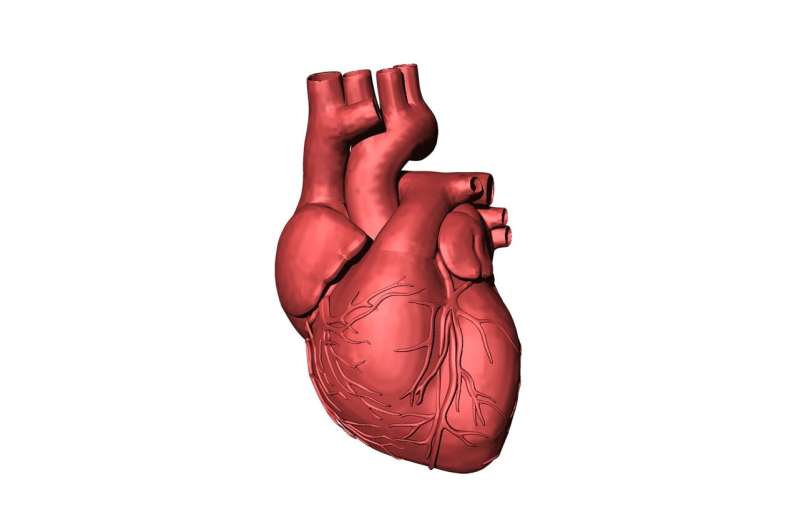March 6, 2023 report
This article has been reviewed according to Science X's editorial process and policies. Editors have highlighted the following attributes while ensuring the content's credibility:
fact-checked
peer-reviewed publication
trusted source
proofread
Reducing tricuspid valve regurgitation with a minimally invasive clip improves quality of life, study finds

A new device for relieving tricuspid valve regurgitation has concluded clinical trials, with researchers reporting increased quality-of-life surveys, reduced disease severity results, and safe patient outcomes. The condition affects tens of millions of people worldwide, and partly due to the age demographics of those most severely affected, there are few recommended treatments.
The device, TriClip, is a solution from Abbott Laboratories' structural heart therapies group to correct tricuspid heart valve backflow of blood due to the valve failing to close properly. This incomplete exchange between the heart's upper chamber and lower chamber can cause structural changes and damage the heart over time. The clip maintains the structural integrity of the valve, returning it to regular operation and preventing backflow.
In the unblinded trial, 350 patients with symptomatic severe tricuspid regurgitation were enrolled at 65 centers in the United States, Canada, and Europe. The mean age of the patients was 78 years, and 54.9% were women. Half were randomly assigned to receive the clip via a minimally invasive procedure administered through the femoral vein under general anesthesia. Nearly all patients who underwent the procedure were discharged from care within a day.
The half that did not have the procedure served as a control group. The study is considered unblinded as both patients and clinicians knew who had received the procedure. However, the resulting data was blinded before analysis by principal investigators not affiliated with Abbott.
At the end of 1 year, TriClip recipients reported a significantly higher quality of life than the control group (+12.3 vs. +0.6). They showed dramatic reductions in the severity of their tricuspid valve regurgitation, with 37.7% reporting a change from a severe to moderate category and 49.7% moving from severe to trace or mild after 30 days.
Just 4.8% of those in the control group reported a reduction from severe to moderate. 98.3% who underwent the procedure were free from major adverse events at 30 days.
The registered clinical trial results have been published in The New England Journal of Medicine and presented at the American College of Cardiology conference.
Patients with tricuspid valve regurgitation often experience lower quality-of-life issues like fatigue, shortness of breath, irregular heart rhythms, and swelling of the abdomen, arms, and legs. In severe cases, heart failure and death can result.
Because of the mean age of the participants in the trail (78), it is unlikely any of them would have been recommended to undergo open heart surgery to attempt tricuspid valve repair. Having a minimally invasive alternative could give future clinicians an option where before there was none.
More information: Paul Sorajja et al, Transcatheter Repair for Patients with Tricuspid Regurgitation, New England Journal of Medicine (2023). DOI: 10.1056/NEJMoa2300525
© 2023 Science X Network




















